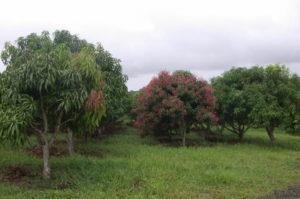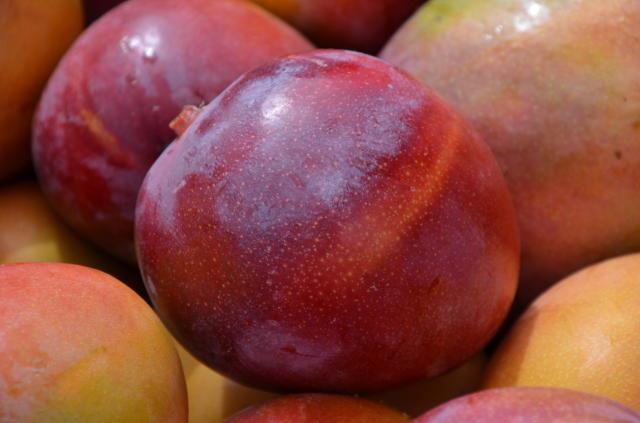
Brazil develops its first-ever organic mango farming system
(MENAFN- Brazil-Arab News Agency (ANBA)) p>São Paulo – Brazil has its first-ever [...] . Research had been underway for over 10 years at the Mandioca e Fruticultura (Cassava and Fruit Culture) unit of the Brazilian Agricultural Research Corporation (Embrapa). Now, the results are available to growers online in a guide that covers everything from preparing the soil to dealing with pests and irrigation.
Embrapa has developed organic farming systems for over 50 items in the past, including pineapple. The new mango system was developed for the Chapada Diamantina area of the state of Bahia, but it is replicable anywhere in Brazil. 'It was developed for this locality, but it can be adapted to other regions, because all of the basic principles of organic farming are described in the system,' said Ana Lúcia Borges, who's responsible for the new farming system.
[...]
Organic mango yields surpassed those of conventionally grown crops in some states of Brazil
Bahia is the second biggest mango producing state in Brazil, at 442,233 tons harvested in 2019. 'Bahia has the largest harvested area in Brazil. At this time, some 100 hectares are farmed organically, mostly by family farmers,' said Borges.
The holder of a doctorate degree in Soil and Plant Nutrition, she argues that the initiative should support smallholder farmers who are already growing mangoes, and in the long run it should make more organic fruit available for domestic sales as well as exports. The first half of 2020 saw 54,352,138 kg of mango shipped from Brazil (including non-organic). The amount was down 21% from H1 2019.
The system
Embrapa partnered up with Bioenergia Orgânicos, a private company with 100% Brazilian capital, for the research work. The company is interested in growing organic mango to process into juice. Working on land owned by the company, the researchers chose two varieties to grow: Ubá mango, which is originally from Minas Gerais and well-suited to juice-making, and Palmer mango, from Florida, United States, which is usually sold whole.
Here's more on Brazilian agribusiness:
Twenty researchers were involved in the work. Embrapa's semiarid climates unit (Embrapa Semiárido) in Petrolina, where mango farming is widespread, was another partner. During the first year of research, emphasis was placed on the soil, to find out how to cater to the plant's needs. 'The area's soil is nutrient deficient. We had to build that foundation. We made corrections using lime and gypsum, and that enabled an organic system. Then we grew other plants – two legumes and Gramineae – to help increase the soil's carbon rates,' she said.
The team then set about studying the best genotypes, and that led them to Ubá and Palmer mangoes. 'Both responded well, so the ultimate choice will depend on whether the grower wants to sell it for juice or for people to eat. The biggest issues we had were leafcutter ants, and we employed natural products to address that,' she explained.
After 10 years of farming, the organic crop's average yield began to resemble, and even surpassed that of conventional systems. 'We were really pleased with these results, because organic farming requires the grower's attention. You need to watch your crop closely each day. And then there's health benefits to growers, most of whom are family farmers looking to grow food they would buy for their own families,' said Borges, noting that organic fruit usually lasts longer on the shelf than the conventional kind.
Translated by Gabriel Pomerancblum
Fernanda Birolo/Embrapa.jpg)
Legal Disclaimer:
MENAFN provides the
information “as is” without warranty of any kind. We do not accept
any responsibility or liability for the accuracy, content, images,
videos, licenses, completeness, legality, or reliability of the information
contained in this article. If you have any complaints or copyright
issues related to this article, kindly contact the provider above.


















Comments
No comment